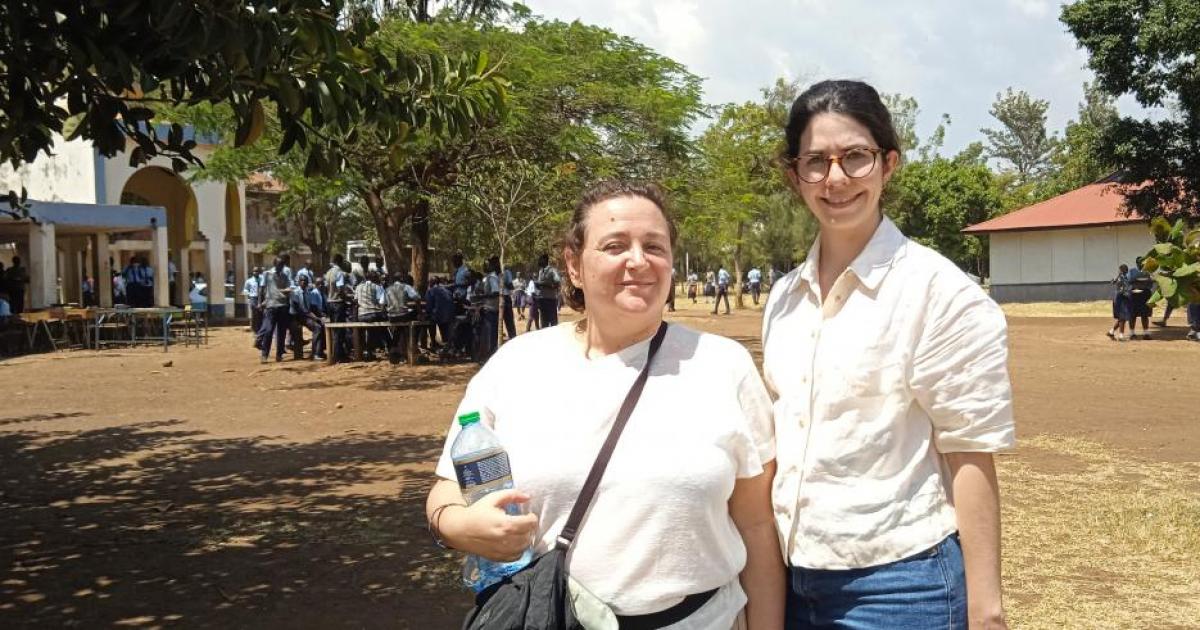From Zaragoza to the heart of Africa to fight malnutrition

A huge smile and excited eyes light up a face Titian de Magistris, A researcher in the cross-sectional agro-food economics unit of the Aragonese Center for Agri-Food Research and Technology (CITA), when she recalls her days in Africa, a continent completely unknown to her.
A place she came to for business reasons and did it, as she put it, “for fear of getting sick of something or thinking something was going to happen to me” and from which she came back completely in love and amazed. “My experience there was the complete opposite. An extraordinary experience, as I was surrounded by African researchers of a very high standard and a wonderful way of being. A continent that I will return to as often as my research there allows me to,” says Tiziana.
She and Pilar Oldemolen, A CITA researcher-in-training traveled to Kenya a few days ago to learn about the nutritional needs of its population. And they did so because both are part of one of the most ambitious European projects of recent times, HealthyDiets4Africa: Fighting malnutrition in Africa through dietary diversification. An initiative funded by the Horizon Europe programme, Coordinated by the German University Justus Liebig Universitaet de Giessen, the hypothesis of which is based on the fact that diversifying the diet helps combat all forms of malnutrition, while reducing its environmental impact.
A pilot proposal that will be developed over a period of six years and will have a scope of work across several regions in Africa (Ivory Coast, Liberia, Cameroon, Nigeria, Kenya, Benin Republic and Uganda) And where about twenty countries cooperate, including Spain, represented by CITA. This organism The investigation methodology will be coordinated Which, among many other things, aims to introduce new products into the diet, such as dried vegetables or certain proteins that help them complete their diet.
Learn to cook
In addition, they will be taught how to cook new products with accessible recipes. “It is important to let them see that this experience will have a positive impact on them. It will change the way they see things in countries where they work all day and where the main course is dinner, so food is bought around midnight, after a day’s work,” he said.
CITA will be responsible for implementing this methodology and “seeing its economic impact, as well as accepting the products that we want citizens of these countries to include in their diets in order to improve their nutritional profile. But not only that” and We also want to train people so that they can analyze those results from the field itself. We will do the latter altruistically because it is absolutely necessary to advise the participants so that they can make the project their own, ”explains Tiziana, who wants to return to the region at the beginning of 2024.
To make his work a reality, he has a budget of about 522 thousand euros of the total amount allocated for this project (10.99 million euros). “It is quite a pioneering experiment compared to what has been done so far in Africa. And something very useful for future experiments that will be done on this continent, live laboratories will be set up in these seven countries to see the real development of the project,” he points out.
In order for this proposal to succeed, Tiziana and the rest of the partners made it clear that it was necessary to progress on the ground to find out the truth about the beneficiaries. Tiziana and Pilar have already had the opportunity, among others, wandering around the markets in Nairobi and Kisumu to learn about different ways of selling food; Take a tour of a company that produces food from insects and visit a high school to learn about projects in which students learn to grow their own food
An unforgettable journey that allowed Tiziana to make George Kimble’s own phrase: “Our ignorance of it has always been the darkest in Africa.”

“Award-winning zombie scholar. Music practitioner. Food expert. Troublemaker.”









